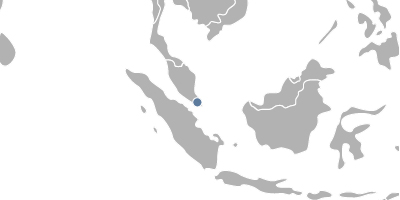Singapore

International Country Code:
SGTime Zone:
UTC/GMT +08:00Currency:
Singapore dollar (SGD)Singaporean PCT national phase entry
Singaporean PCT national phase entry
- Patent fees
Fees associated with Singaporean PCT national phase entry as well as other patent fees are available in the fee calculator.
- Deadline for PCT national phase entry in Singapore
The time limit for entering the national phase of PCT in Singapore is 30 months from the date of priority. This term may be restored within 18 months from the expiration date upon payment of a corresponding surcharge.
- Filing requirements in Singapore
The official language of the Singaporean patent application is English. Filing an application in any other foreign language is not permitted. Verified English translation of the specification is required if the PCT application is not filed or published in English.
To obtain the date of filing a PCT national phase patent application in Singapore should contain:
- the filing number and date of the PCT application;
- country, filing number and date of the priority application(s);
- indication of whether national phase entry is initiated under Chapter I or Chapter II;
- abstract, description and drawings (if the PCT application has not been published).
Submission of the Power of Attorney is not required for PCT national phase entry in Singapore.
- Examination of a PCT national phase patent application in Singapore
The patent application in Singapore undergoes the formal and substantive examination.
An applicant of the Singaporean patent application has several options in respect of substantive examination procedure in Singapore:
- to file a request for search and examination (36 months from the priority date, extendable by 18 months);
- to file a request for substantive examination based on the International Search Report (36 months from the priority date, extendable by 18 months);
- to rely on International Preliminary Report on Patentability (54 months from the priority date, extendable by 18 months).
It is possible to file a request for use of the search and examination results from the ASPEC member-country, and thus expedite the examination process.
- Novelty grace period
The novelty of the invention is not disproved, if the information about the invention was disclosed by the Inventor at an International Exhibition or before a learned society, or as a result of a breach of confidence, within 12 months before filing the application, or, if priority is claimed before the priority date.
- Grant, validity term and maintenance fees
The official granting fees should be paid within 2 months from the date of issuance of the Notice of Allowance. The validity term of a patent in Singapore is 20 years from the international filing date. The annual fees should be paid starting from the 5th year counting from the international filing date and become payable within the three months before the deadline. Late payment is possible within 6-month grace period upon payment of a corresponding surcharge.
- Duration of registration procedure
It takes an average of 2-4 years from filing up to grant of a patent in Singapore in case of smooth procedure.
- Utility Model
Protection of the inventions as utility models in Singapore is not possible.
- Representation by a patent attorney
Foreigners must perform the prosecution of PCT national phase entry application in Singapore through an agent, a Singaporean-registered patent attorney.
- Notes
1. Online Search database for Singaporean Patents.
2. Patents granted in Singapore after February 11, 2003 may be reregistered in Cambodia and obtain effect without examination.
3. Patents granted in Singapore may be reregistered in Lao People's Democratic Republic. The patent must be in force at the time of lodgement of reregistration request.
The above information was verified on 06.08.2025
Please contact us if the above information is not in conformity with Singaporean IP Laws